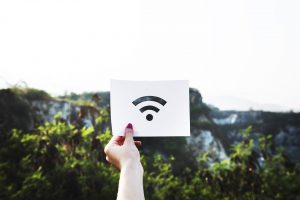 It seems we are never really done with loads-shedding and even though we try our utmost to prepare for the imminent interruptions, there is only so much we can do.
It seems we are never really done with loads-shedding and even though we try our utmost to prepare for the imminent interruptions, there is only so much we can do.
We realise that a stable internet connection in classrooms is vital for lecturers to stream academic content to students. In most university buildings we have generators in place to provide a backup for load-shedding. However, unfortunately we cannot guarantee uninterrupted supply of power. The reasons are as follows:
When load-shedding starts all network equipment loses power and the generator automatically kicks in. The network equipment will do a so-called “cold-boot” which can take several minutes. Subsequently it can take 10 minutes to 30 minutes (in some extreme cases) for the network to function optimally again.
Adding to this delay it could happen that network equipment will not recover automatically when the generator is activated. In these instances the network and WiFi will remain down for the whole duration of the load-shedding slot.
Stabilising equipment and connections during load-shedding isn’t practically possible since the effort must be repeated once Eskom switches the power back on. However, we do have a monitoring system which checks for the equipment that does not recover by itself.
In most cases WiFi and the rest of the network should be operational with the help of generator power after about 10 minutes. To ensure that the transition is seamless and network connectivity continues, it would be helpful if staff in the building could, after about 15 minutes after the generator started, check if the WiFi is active or not.


 All services offered by the IT HUB in the Admin A building – collection of equipment and any type of technical support – are available by prior arrangement only.
All services offered by the IT HUB in the Admin A building – collection of equipment and any type of technical support – are available by prior arrangement only. Last month some university staff’s mailboxes were flooded with
Last month some university staff’s mailboxes were flooded with 